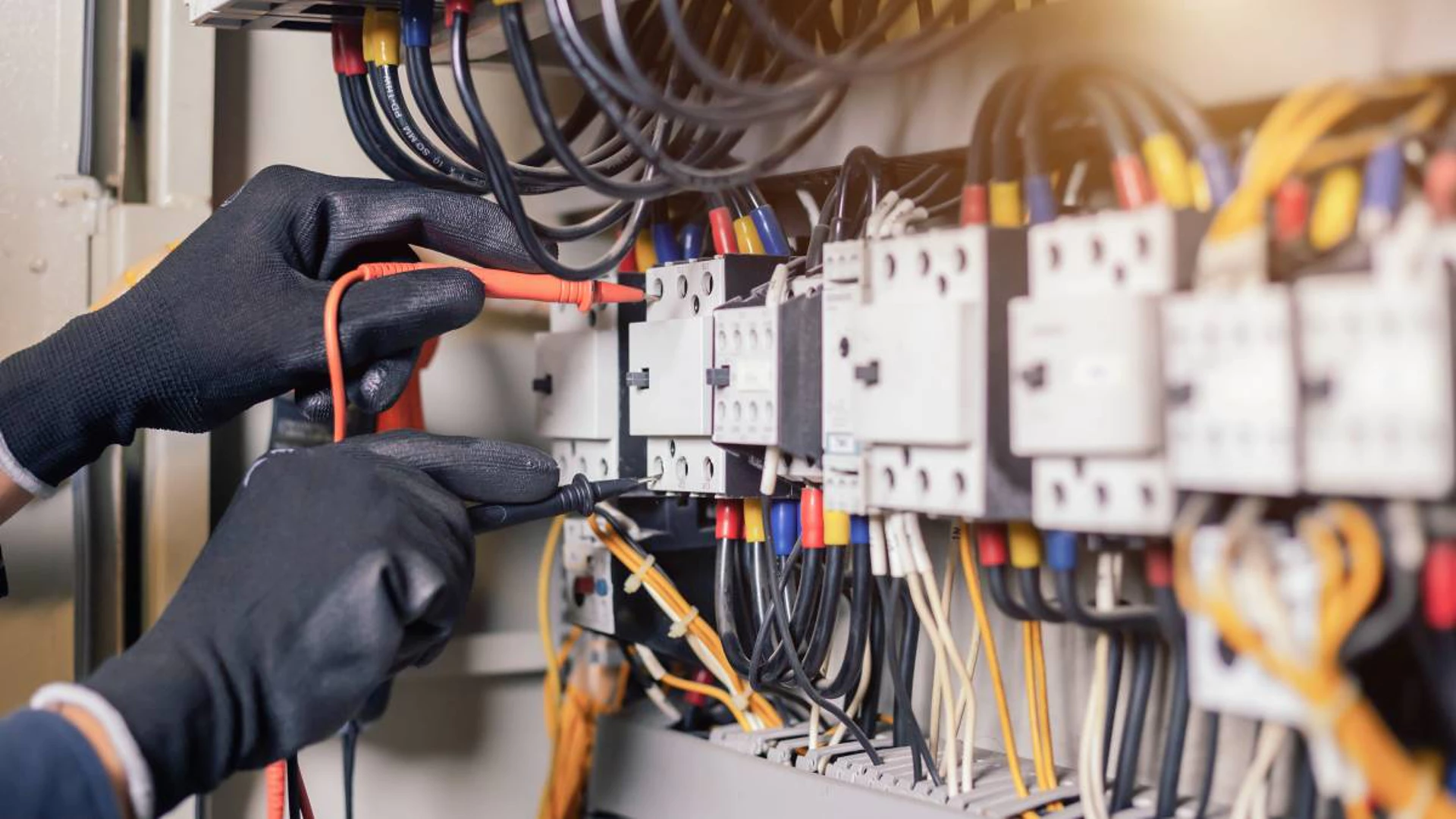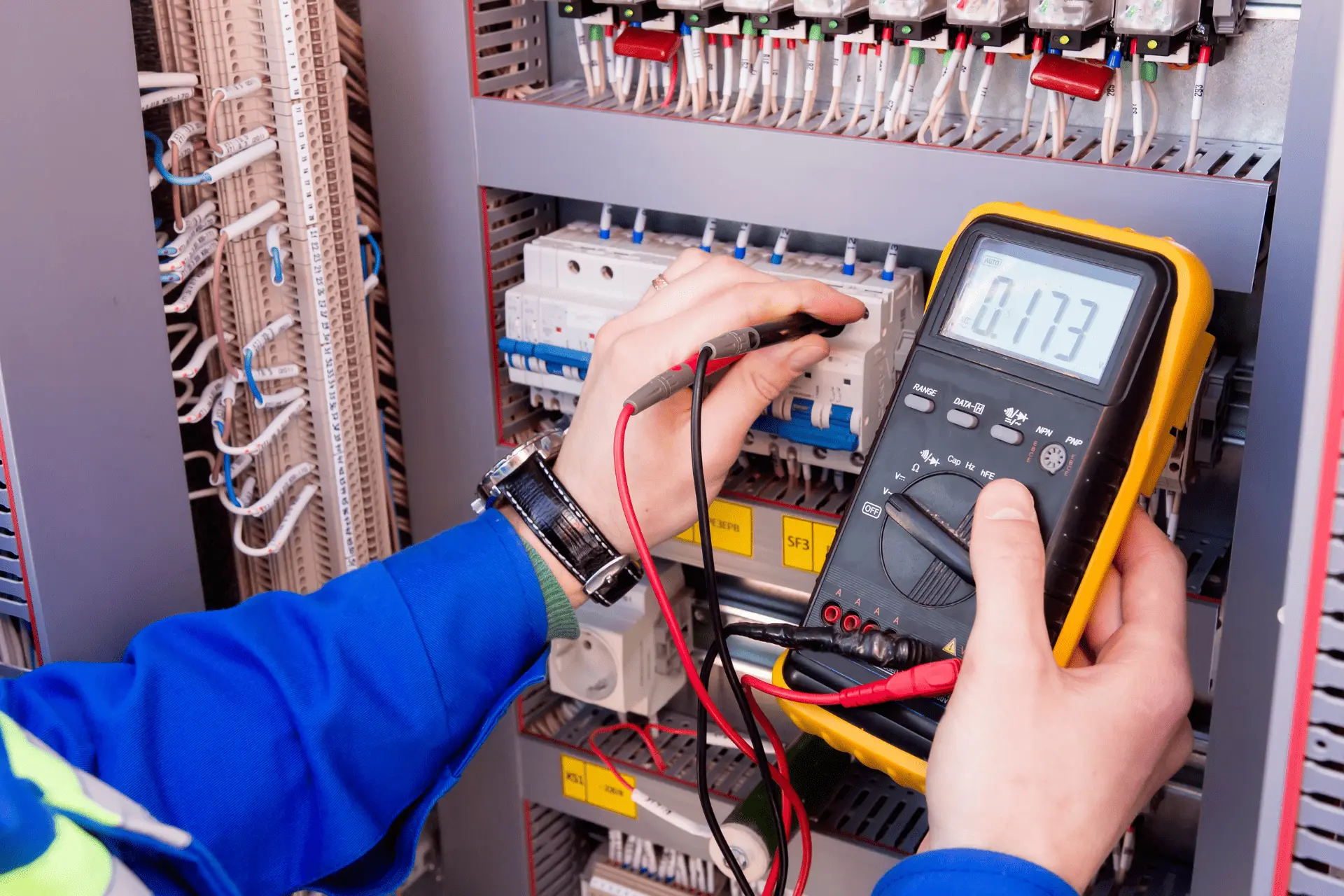An Overview
The Electrician in the E-State Nirman Nigam plays a vital role in ensuring the effective functioning of electrical systems in various state-run construction projects, including residential, commercial, and industrial structures. E-State Nirman Nigam (ESNN) is a government-owned entity in many states in India, responsible for executing large-scale infrastructure and urban development projects. The work of an electrician in such organizations is not only technical but also crucial for the overall success of these projects. Below, we will explore the role, responsibilities, skills, and significance of electricians in E-state Nirman Nigam.

Role of Electricians in E-State Nirman Nigam
An electrician in the E-State Nirman Nigam is primarily tasked with installing, maintaining, and repairing electrical systems within various construction projects. These projects could range from residential buildings to government offices, schools, hospitals, and other critical infrastructure. The role involves working on a wide range of electrical systems, including power distribution, lighting, air conditioning, security systems, and fire alarms.
Electricians are an integral part of the construction team, working alongside civil engineers, architects, and other specialists to ensure the electrical infrastructure is safe, efficient, and up to code. They typically work under the supervision of senior engineers or project managers and follow detailed technical plans and blueprints to complete their work.
Responsibilities of Electricians
The duties and responsibilities of an electrician working in the E-State Nirman Nigam are extensive and varied. These include:
Installation of Electrical Systems: Electricians are responsible for installing electrical wiring, sockets, switches, lighting fixtures, circuit breakers, and other electrical components based on blueprints and electrical plans. These installations must adhere to safety standards and government regulations.
Maintenance and Inspection: Regular maintenance of the electrical systems is crucial for ensuring the safe and continuous operation of the building. Electricians perform periodic inspections, check the condition of electrical wiring, identify faults, and fix any issues related to short circuits, power losses, or equipment failures.
Troubleshooting and Repairs: When electrical issues arise, electricians are responsible for diagnosing the problem, whether it's a malfunctioning appliance, a blown fuse, or a short circuit. Once the fault is identified, electricians carry out the necessary repairs or replacements to restore the functionality of the system.
Testing and Commissioning: After installing electrical systems, electricians perform tests to ensure that the systems are working properly and safely. This includes checking the voltage, current, and resistance of various electrical components to ensure everything is functioning as per the required specifications.
Ensuring Safety Compliance: One of the most critical aspects of an electrician’s role is ensuring that all electrical installations comply with local, state, and national safety standards. This includes ensuring proper grounding, using insulated tools, installing circuit breakers to prevent overloads, and adhering to fire safety regulations.
Collaboration with Other Professionals: Electricians work closely with other construction professionals, such as civil engineers, architects, and designers. They may provide feedback on design choices, especially if there are potential issues with the feasibility or safety of the electrical installations.
Documentation and Reporting: Electricians maintain records of electrical installations, maintenance schedules, and any repairs or modifications carried out. These records are essential for audits, inspections, and future troubleshooting.

Skills and Qualifications Required
To perform effectively in the role of an electrician in the E-State Nirman Nigam, a range of technical and practical skills are required. The job requires a blend of theoretical knowledge, hands-on experience, and awareness of safety protocols.
Technical Knowledge: Electricians must have a solid understanding of electrical theory, such as voltage, current, resistance, and power factors. They should be familiar with circuit diagrams, electrical codes, and building regulations. Knowledge of the latest electrical technologies, such as automation systems, smart grids, and renewable energy solutions, is also advantageous.
Practical Skills: Electricians must be adept with tools such as wire cutters, multimeters, drills, and cable strippers. They should also have the ability to install and troubleshoot different electrical devices, from simple light switches to complex machinery.
Safety Awareness: Safety is paramount in electrical work. Electricians must understand and implement safety measures to prevent electrical shocks, fires, and accidents. This includes wearing appropriate personal protective equipment (PPE), working with live wires, and ensuring all electrical work complies with safety standards.
Problem-Solving Skills: Troubleshooting is a key part of an electrician’s job. When a system fails, electricians must be able to diagnose the problem quickly and effectively. This requires a deep understanding of electrical systems and the ability to think critically under pressure.
Physical Fitness: The work of an electrician often involves climbing ladders, working in confined spaces, and lifting heavy equipment. Physical fitness and the ability to work in demanding conditions are important aspects of the job.
Communication Skills: Electricians must be able to communicate effectively with other team members, especially engineers and project managers. Clear communication is essential for coordinating tasks, ensuring safety protocols are followed, and resolving issues in the electrical system.
Certifications and Training: A formal education in electrical engineering or a vocational training course is typically required. Many electricians also undergo apprenticeships or on-the-job training. In addition, they may need certifications from regulatory bodies or electrical licensing authorities.

Importance of Electricians in E-State Nirman Nigam
Ensuring Safety: E-state Nirman Nigam The most crucial role of an electrician is ensuring the safety of the electrical installations. Electrical failures can lead to fires, electrocution, and equipment damage. By following best practices and adhering to safety standards, electricians reduce the risk of such accidents.
Enhancing Infrastructure Quality: Well-installed electrical systems enhance the quality and functionality of the building or infrastructure. Proper lighting, reliable power supply, and effective security systems contribute to the comfort, productivity, and security of the building’s occupants.
Supporting Sustainable Development: In the context of modern urban development, electricians also play a role in incorporating energy-efficient systems, such as LED lighting, energy-efficient appliances, and solar panels. These contribute to the state’s commitment to sustainable development and reducing the environmental impact of new buildings.
Compliance with Regulations: E-State Nirman Nigam is responsible for ensuring that all state infrastructure projects comply with local building codes and regulations. Electricians, by ensuring proper installation and maintenance of electrical systems, help the organization meet these legal requirements.
Cost Efficiency: Efficient electrical systems that require fewer repairs, maintenance, and replacements can save considerable amounts of money over the long term. By ensuring that the electrical installations are done properly from the start, electricians contribute to the overall cost efficiency of the project.

Conclusion
The role of an electrician in the E-State Nirman Nigam is integral to the success of state infrastructure projects. Electricians are responsible for ensuring the safety, functionality, and sustainability of electrical systems in various buildings and infrastructure developments. Their expertise is not only crucial for the timely and cost-effective completion of projects but also for meeting safety standards and regulatory requirements. By working closely with other professionals and adhering to best practices, electricians help shape the electrical systems that power modern buildings and contribute to the overall development of the state. Their skill set, attention to detail, and commitment to safety make them an indispensable part of any large-scale construction initiative.
